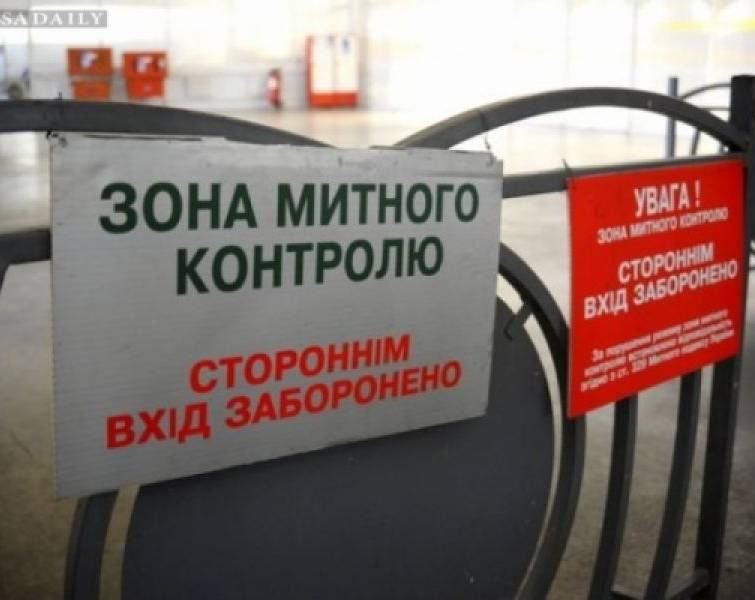Agricultural products of the aggressor countries will be subject to European tariffs

The leaders of the member states of the European Union instructed the executive bodies of the EU to prepare proposals regarding additional tariffs for Russian and Belarusian agricultural products. This mandate to the Council of the EU and the European Commission is spelled out in the conclusions approved as a result of the meeting of the European Council in Brussels. It is worth noting that the strategic interest of the EU is determined in the conclusions - it is a competitive and sustainable agricultural sector.
The agricultural sector needs a stable and predictable structure and, according to preliminary conclusions, the European Council calls for the speedy adoption of amendments to the regulation of the Common Agricultural Policy. Therefore, work will continue, in particular, to introduce additional tariffs on certain imports of Russian and Belarusian agricultural products into the European Union, taking into account the impact on the Single Market and ensuring that the transit of such goods to developing countries remains intact.
As for the issue of blocking the border with Ukraine due to the uncertainty of the situation with the export of agricultural products, the Prime Minister of Poland, Donald Tusk, after the summit of the European Council in Brussels, called on Polish farmers to stop blocking the border with Ukraine. At the same time, he emphasized that the Polish authorities cannot allow crossings to be blocked, regardless of the reasons for the protests. The politician also reminded that border crossings, according to the latest decision of the Polish government, have the status of critical infrastructure and emphasized that the state is ready to provide further forms of assistance to those farmers who have lost part of their income.
In general, in the future, the EU will be forced to change its agricultural policy after the accession of Ukraine. After all, as the Minister of Agriculture of Poland Czeslaw Sekersky noted, the process of Ukraine's accession to the European Union will lead to the need to change the agricultural policy of the bloc. He noted that the entry of Ukrainian agricultural products into the EU market, on the one hand, will strengthen the position of the European Union on the world market in the field of processing and raw materials, and on the other hand, it will lead to increased competition in the single agricultural market and to transformations among European producers and processors. He also reminded that the EU, including Poland, has a different model of agriculture than in Ukraine.
"There, the decisive players in the market are large agricultural enterprises and agroholdings, while in the member countries the basis is family farms. After 20 years, we must review the Common Agricultural Policy, which is now designed for the needs of small family farms. It will not suit the large-scale agriculture of Ukraine," the government official summarized.
And there are other measures to support Ukraine and immerse it in the European system. For example, Denmark expanded by 300 million Danish kroner (about $43 million) the financing of the Danish Export Investment Fund, which supports not only Danish exporters, but also provides financial instruments for Ukrainian companies that have Danish suppliers and Danish companies that are ready to invest in Ukraine. So far, the Fund has already selected 21 projects that Denmark is ready to implement in Ukraine. And with this in mind, the first vice-prime minister of Ukraine, the minister of economy Yuliya Svyridenko noted that in addition to supporting investments in Ukraine, partners are ready to support Ukrainian imports to Denmark. The country already has several pilot projects. For example, shelves with goods made in Ukraine appeared in Danish supermarkets. In addition, the Danish Chamber of Commerce is ready to popularize the purchase of Ukrainian products by Danish companies and to promote the entry of Ukrainian manufacturers into the Danish market.
By the way, regarding exports, it should be added that Ukraine will be able to export all the remaining grain of the 2023 harvest by the end of May. As Mykola Gorbachev, president of the Ukrainian Grain Association, noted on this occasion, the logistics component, in particular the work of the ports of Great Odesa, will be better. This will enable Ukrainian farmers in 2025 to focus not only on profitable crops, which are unprofitable for them in the current season, but will increase production in all sectors of the agricultural sector. In general, among the difficulties that exporting companies will face in the 2024 season, the president of UZA named the projected union of France and Poland, which will oppose the access of Ukrainian grain to the European market. In his opinion, these two states will lobby for the introduction of legislative and sanitary restrictions that will hinder Ukrainian business. At the same time, M. Gorbachev expressed confidence that this will encourage Ukrainian agrarian business to look for new sales markets.
Regarding exports, it should be added that, as previously reported, licenses for the export of major agricultural crops from Ukraine to Poland will be issued only upon agreement with the Polish side. Currently, Ukraine and Poland are negotiating on unblocking the common border. Currently, the Ukrainian side has effectively protected itself from the possibility of a critical situation in trade with Poland. For this purpose, the minimization of export dependence on its transit through Polish territory was ensured. Compared to the situation a year ago, now everything is not so critical for Ukraine. The Black Sea Corridors have already been unblocked, export capacities in the Danube Corridor have been increased, and agreements have been reached on the opening of additional checkpoints, in particular with Hungary. Ukraine also limited the export of products to Poland. But if the problems on the border with Poland continue and nothing is done to solve them, then Ukrainian exporters will simply reorient themselves to other directions.
 Found a mistake on the site? Tell us:
Found a mistake on the site? Tell us:

 Telegram
Telegram